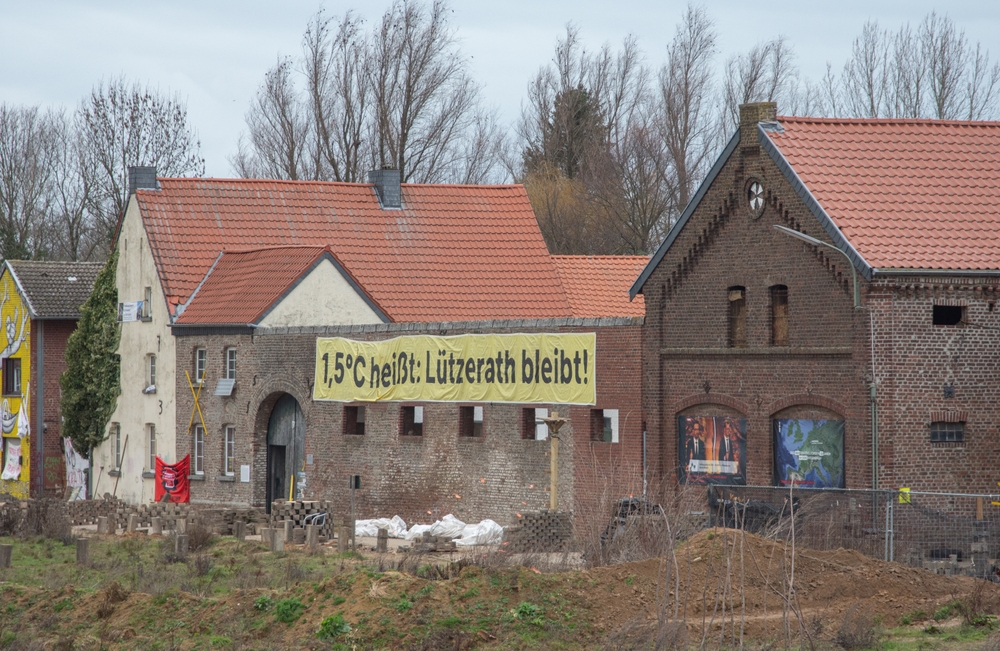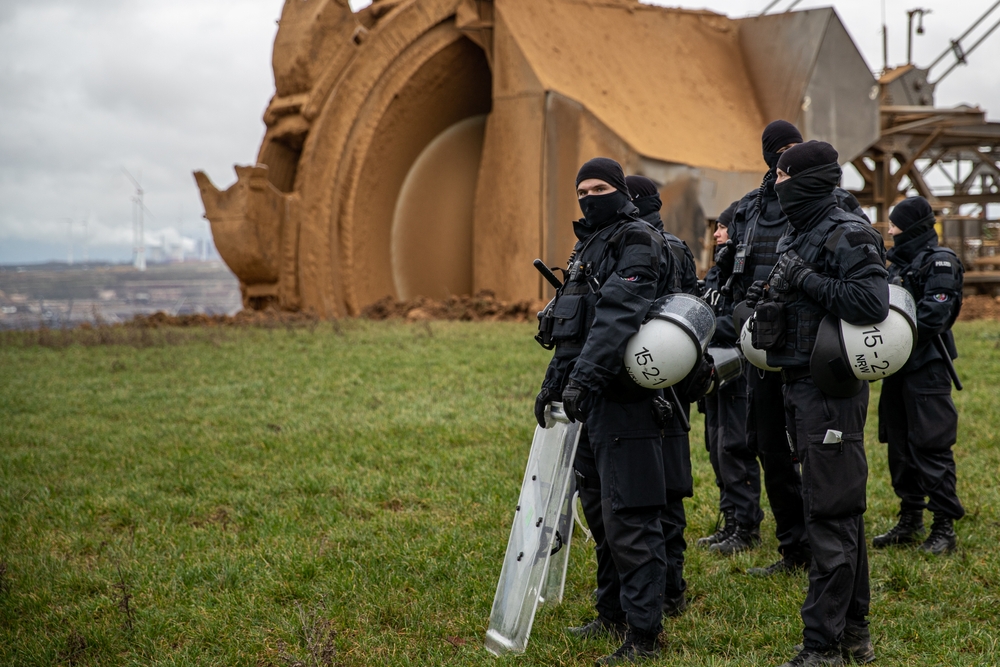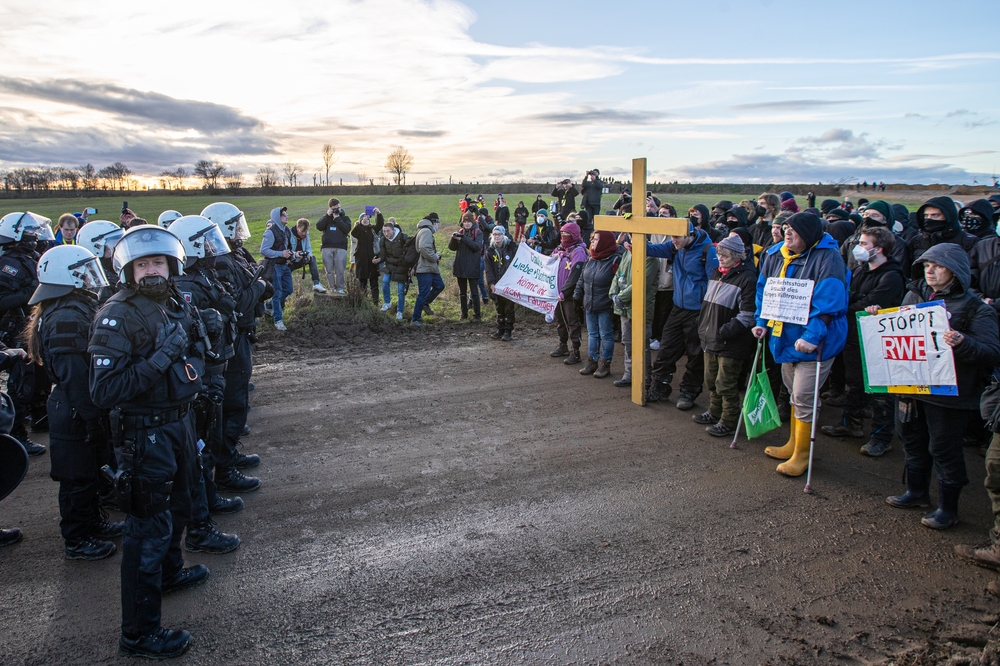Greta Thunberg, famous for her peaceful climate protests in front of Sweden’s parliament, was detained by police last month for demonstrating against a coal mine expansion in Germany. The Swedish activist is a symbol of the climate movement, and one could argue that her arrest is representative of the changing nature of climate activism. Recent years have seen an increase in unlawful resistance by activists who, for example, glue themselves to the street or throw paint at artwork. In Germany, activism in this form has received widespread attention because of the recent protest against a coal mine expansion, the protest where Greta Thunberg was arrested at. By occupying Lützerath, activists were trying to prevent the village from being replaced by a coal mine. But to tell the story of Lützerath and the increase in civil disobedience in the climate movement it represents, we need to start at the beginning.
In 2021, national elections were held in Germany, replacing the conservative-led government of Angela Merkel with a centre-left coalition of social democrats, liberals and importantly, the Green Party. The Green Party is closely connected to the climate movement. Under its pressure, the new government promised a stronger stance on climate issues. Hope was high that the 1.5°C target of the Paris Climate Agreement would actually be kept in Germany.
However, the invasion of Ukraine by Russia last year, and the resulting energy crisis have restricted plans to expand on renewable energy and the Green Party had to make many compromises. One of these trade-offs concerns the German energy giant RWE. According to the German government, coal mines are essential for energy security during this energy crisis. Therefore, Robert Habeck, Minister of Economy and a face of the Green Party, struck a deal with RWE, allowing the demolition of the village Lützerath so that the coal underneath the village could be mined. The deal was presented as a win as it prevented the demolition of five other villages; and as RWE in turn agreed to phase out coal until 2030 instead of eight years later as set out by German law. The Green Party, often criticised for their idealism, is also arguing that while the fight against climate change is crucial, now that they are in government, they need to be pragmatic. Critics argue that the coal underneath Lützerath is not necessary for energy security. In fact, studies by universities in Berlin and Flensburg have shown that Germany does not need the coal and that more support for renewable energy would be sufficient to create energy security. Other studies, however, funded by RWE and the German government say otherwise, supporting the case that Lützerath needs to be demolished.


The actual residents of Lützerath are long gone. They moved away after they had lost numerous lawsuits or were bought out by RWE. Instead, activists had been living in Lützerath since 2020, occupying the empty houses. They had been preparing for the eventual eviction, planning to protect and defend Lützerath. Activists from all over Germany and even from all over Europe joined the sit-in protest in January, when the eviction was finally supposed to take place. However, within days the village was evicted by hundreds of special police units, who tore down the erected tree houses and carried activists out of the houses which are now once again empty.


On a Saturday a few days after the eviction had begun and almost no one was left in the village anymore, a huge protest close to Lützerath was organised. Here, Greta Thunberg spoke of the “betrayal of present and future generations” by the German government. Later, it came to clashes between the police and protesters as activists attempted to get back into Lützerath. Greta Thunberg, like many others, was detained after getting too close to the edge of the mine, tweeting afterwards that “climate protection is not a crime”. While the protests in Lützerath were widely supported by the German public, the Green Party spoke out against the activists, condemning their resistance to the law. Dismayed by how quickly their resistance was crushed, many activists are now turning their anger towards the Green Party. In the days after the eviction protests at regional offices of the Green Party were common. Climate activists feel betrayed after having voted them into power. In the years before the election, membership of the Green Party doubled, defying global trends of declining party memberships. Louisa Neubauer, the face of the German climate movement and a member of the Green Party, has voiced her concerns that many people might now leave the party. Most of these new members were young people who thought that their fight against climate change could be organised from within the system. But recent years and especially the case of Lützerath have been proof for many of them that unlawful resistance and civil disobedience are necessary to meet the 1.5°C target of the Paris Climate Agreement. Voting and protesting only on Fridays is no longer enough. It may well be that Lützerath represents a turning point in German climate activism.
By Annalena Herrmann








